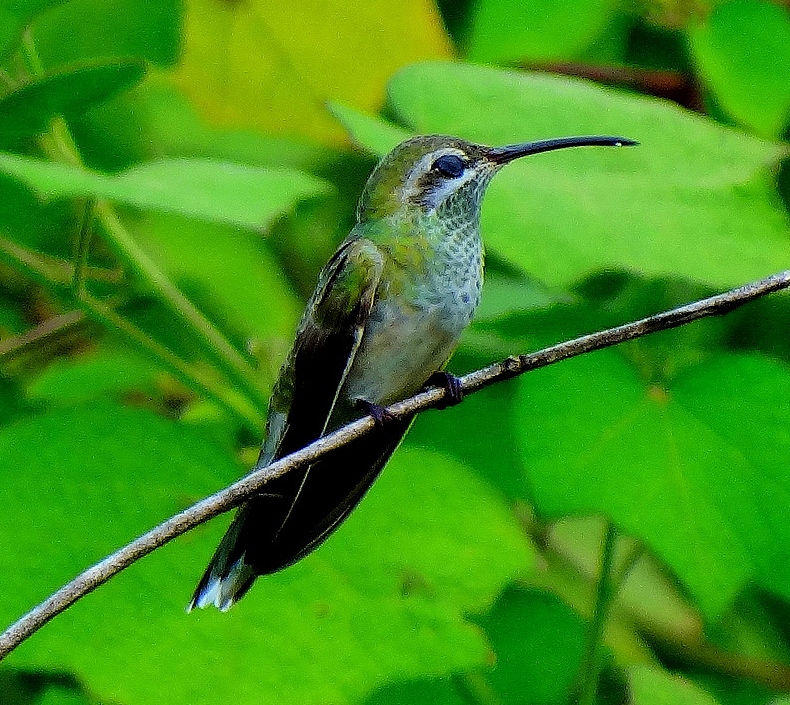 |
| (Photo from Flickr) |
Common name:
white-tailed goldenthroat (en); beija-flor-de-bico-curvo (pt); colibri guaïnumbi (fr); colibrí guainumbí (es); bronzerücken-glanzkehlchen (de)
Taxonomy:
Order Apodiformes
Family Trochilidae
Range:
This South American species is found in Colombia, Venezuela, through the Guyanas and north-eastern Brazil and into central Brazil, Bolivia and Peru. It is mostly absent from the Amazon basin.
Size:
These birds are 9-10 cm long and weigh around 5 g.
Habitat:
The white-tailed goldenthroat is mostly found in wet grasslands and dry savannas, but also in freshwater marshes and swamps, from sea level up to an altitude of 600 m.
Diet:
They mainly feed on the nectar of flowering plants, namely Heliconiaceae, Fabaceae, Malvaceae and Rubiaceae, bt will also catch insects and spiders by hawking and gleaning.
Breeding:
White-tailed goldenthroats nest in a small open cup made of plant fibres, seeds and lichens. The nest is placed in a fork in a small tree or scrub, typically 0,5-1 m above the ground and often over water. There the female lays 2 eggs, which she incubates alone for 14-15 days. The chicks fledge 20-22 days after hatching.
Conservation:
IUCN status – LC (Least Concern)
This species has a very large breeding range and is described as fairly common. There is no information regarding population trends, but the white-tailed goldenthroat is suspected to be stable.







